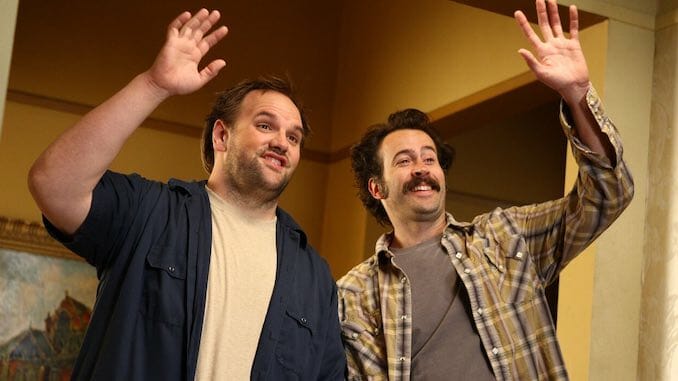It Still Stings: My Name Is Earl‘s Incomplete Journey Towards Forgiveness
Photo Courtesy of NBC
Editor’s Note: TV moves on, but we haven’t. In our feature series It Still Stings, we relive emotional TV moments that we just can’t get over. You know the ones, where months, years, or even decades later, it still provokes a reaction? We’re here for you. We rant because we love. Or, once loved. And obviously, when discussing finales in particular, there will be spoilers:
![]()
When My Name is Earl was canceled by NBC in 2009 after its fourth season, fans were heartbroken that our final glimpse into Earl Hickey’s life was a simple title card promising “to be continued…” After four years of watching Earl transform his life—and so many others’—it felt like a punch in the gut to see his story end this way.
Starring Jason Lee, My Name is Earl was a show about asking forgiveness and doing what’s right to make up for your past mistakes, no matter how long it’s been. Lee played Hickey, a two-bit criminal with no ambition, no drive, and no motivation to do anything except troll around the fictional Camden County in his El Camino with his equally burned-out brother, leaving a wake of destruction and pissed-off people in their path. But all of this changed when Earl had a particularly brutal wake-up call in the form of a little old lady running him over. Earl, never one to see a win in any way, shape, or form, had just scratched a lotto ticket revealing a $100,000 jackpot. What started as an innocent celebratory dance in the middle of the street led to an extended hospital stay, and while recovering, Earl discovered exactly how he was going to turn his life around.
Carson Daly may not be who we immediately think of for life-changing advice, but Earl—drugged up and defeated after losing the scratcher in the accident—hears the TRL host explain his mantra: “Do good things and good things happen, do bad things and it’ll come back to haunt you.” For someone trying to make sense of why the universe would give him $100,000 and then immediately rip it away, this message of karma seemed like a cut-and-dried explanation to Earl. He’d never done anything good in his life, of course he deserved this. Thus, Earl sets off on a journey of righting 30 years of wrongs.
-

-

-

-

-

-

-

-

-

-

-

-

-

-

-

-

-

-

-

-

-

-

-

-

-

-

-

-

-

-

-

-

-

-

-

-

-

-

-

-








































